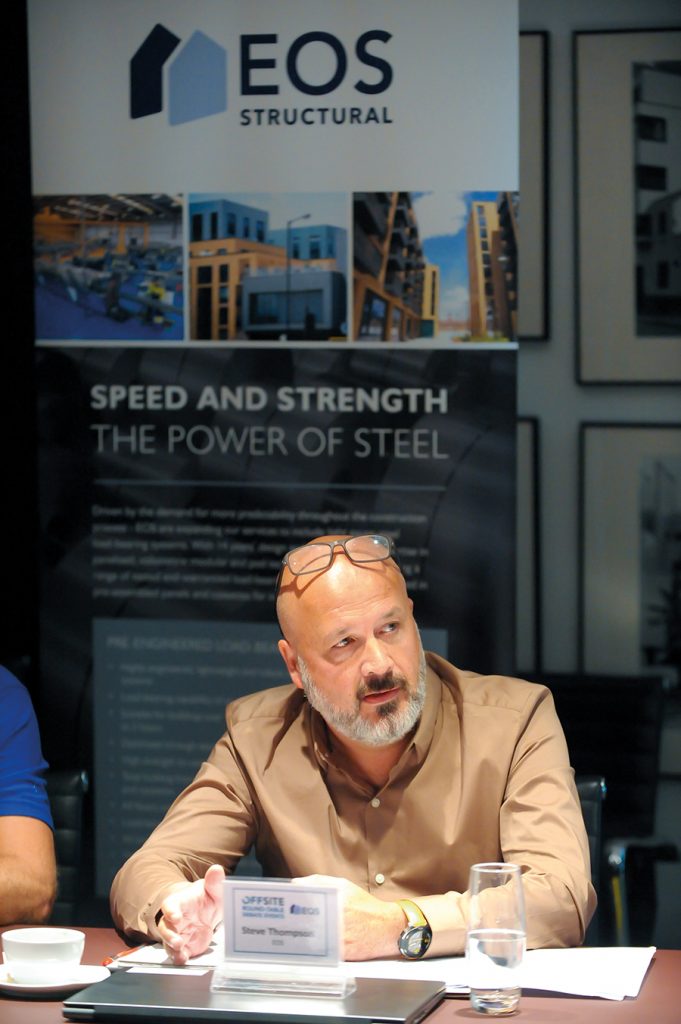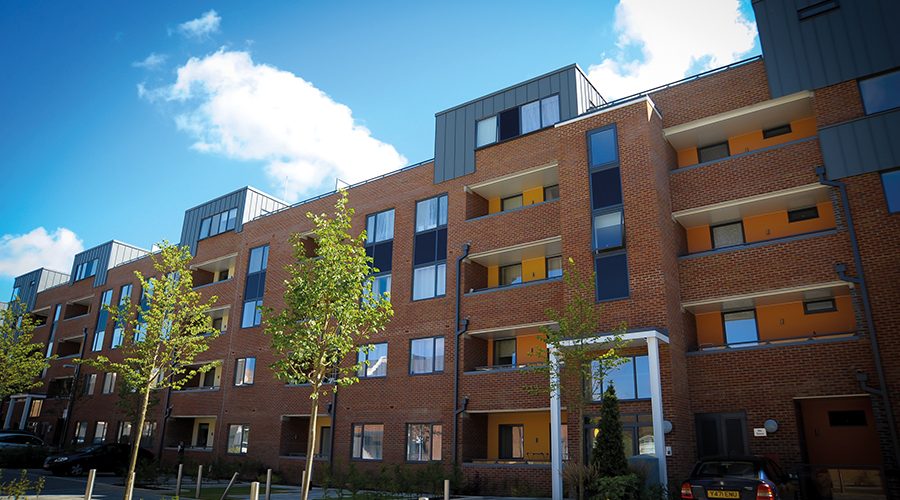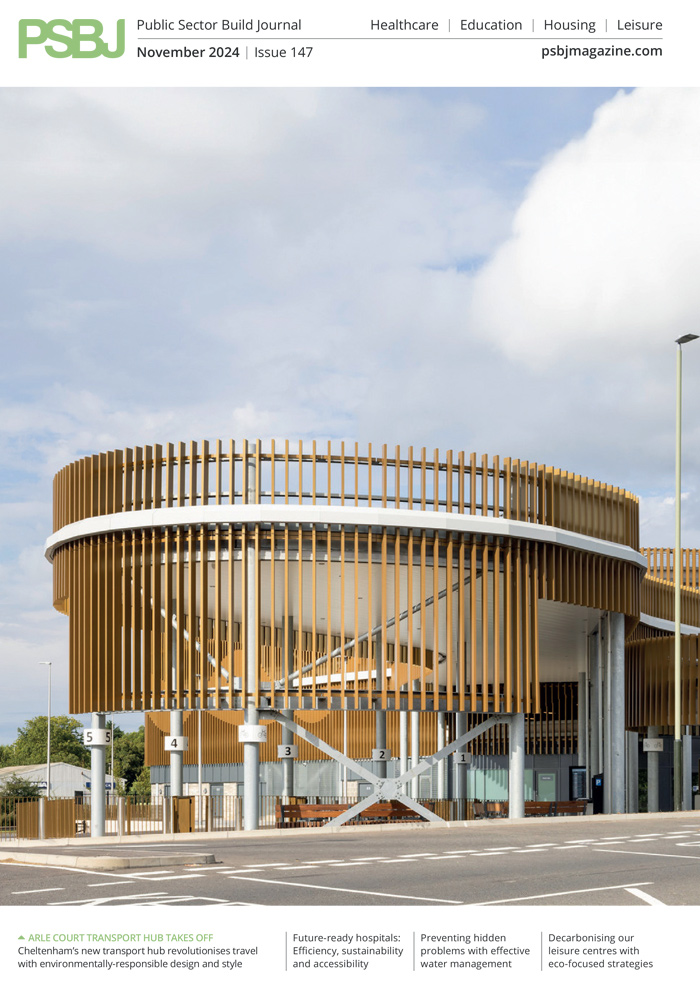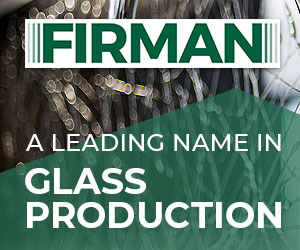With the current shortfall in social housing stock there is a race to produce homes in the
shortest timeframes. Here, Managing Director of EOS, Steve Thompson, discusses how fast-track construction facilitates rapid build programmes without compromising quality.
EOS Framing

With a background in manufacturing, Steve Thompson has worked in Germany and the USA before setting up light steel framing innovator EOS in 2004. In 2016, EOS was acquired and became part of the Etex Building Performance Group.
Until the end of the 20th century, delivery processes tended to follow a sequential process: design, bid, build. Lengthy time periods between each phase dragged construction processes out and stunted productivity.
As a major project delivery strategy in the residential sector, fast-track factory-based construction methods reduce construction time, delivering an earlier return on investment. Offsite manufacture for onsite assembly provides a clear schedule for high outputs, with stringent systems to track professional schedules, milestones and enable the smooth collaboration between contractors and clients.
Construction clients may not fully understand the dynamics of fast-track residential construction. Part of our role as a specialist steel framing manufacturer is to help them get to grips with the cost model and where savings can be made without compromising on quality.
The adoption of offsite construction involves upfront capital costs – this is often the point where the comparison is made between traditional building methods, that in isolation could potentially be viewed as the cheaper option, without taking into consideration the numerous advantages of factory-based methods.
From less material waste onsite with vast reductions in associated disposal costs, to improved quality with less investment in snagging, reworking and delays – comparing cost models is complex. The greatest gain of fast-track construction is shorter construction times with reduced premlims and site management costs – bringing much needed homes rapidly on-stream.
Working in full compliance with all relevant building standards, including the new Building Regulations relating to residential builds over 18m, which came into force at the end of 2018 – EOS manufactures robust steel frame panelised systems and volumetric modules for non-loadbearing and loadbearing applications. We deliver a consistently high quality of finish with fewer defects than traditional building methods as a result of our advanced lean manufacturing processes in a BSI compliant facility.
The future of design and construction is about finding efficiencies and building faster, more cost effectively and delivering a better-quality product. Design for Manufacture and Assembly (DfMA) incorporates all these elements within its process. Finding the most efficient method of delivery reduces the resources required – whether this is measured in cost, time, carbon, waste or labour. Whilst increasing positive aspects such as improved quality, programme and cost certainty together with enhanced health and safety onsite.
Offsite manufactured non-combustible steel systems are considered one of the most efficient fast-track residential construction solutions. The prefabrication of the individual steel elements takes place under controlled, highly regulated and safe factory conditions where the use of leading-edge technology delivers precision-engineered components. With so much work carried out offsite, the onsite construction programme is reduced, and the build programme is relatively unaffected by adverse weather conditions. Furthermore, steel components can be pre-assembled or fabricated into modules either offsite or at low level onsite, which reduces the need for working at height.
Rigid and dimensionally stable, steel provides a robust yet lightweight solution, reducing the complexity and cost of foundation designs and inner-city locations with complex underground infrastructures, the reduction in weight permits more storeys – offering a better return on investment.
It is clear that there is an imperative to improve industry performance, with increasing requirements to design and construct in a more detailed manner and at a rapid pace – these processes are reliant upon effective communication. Construction professionals must work together, as knowledge transfer can be mutually beneficial to all those involved along the design, manufacture and construction journey.
The Office of National Statistics identified that at the end of 2015 housing made up almost 35% of the total annual outputs of the UK construction industry, in the most recent figure from April 2017, the figure has dropped to circa 23%.
As the adoption of offsite technology by what has previously been a traditional industry is gaining momentum, ‘education’ is required at all levels of offsite manufacture – not just its commonly understood long-term benefits but throughout the supply chain and how each stage of the construction cycle is touched by fast-track methods. Architects, clients, main and sub-contractors need to understand more about the offsite industry as a whole, including the philosophy behind its use as well as the disparate range of suppliers and products.
Partnering approach
Partnerships are a core part of the EOS business and the specialist team strive to develop excellent working relationships. With a comprehensive spectrum of products and services – underpinned by a substantial investment in state-of the-art technology – EOS has the capability and capacity to
meet the exacting demands
of the construction industry. EOS guarantees a very competitive price structure, there are no hidden costs for deflection heads or transport, and can provide a lump sum total cost which will not alter, providing the specification remains unchanged.









